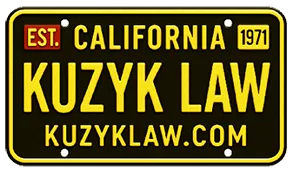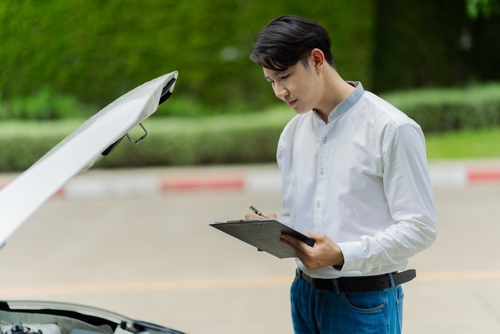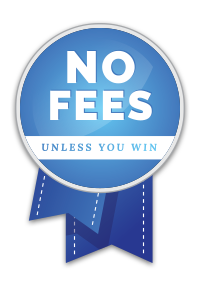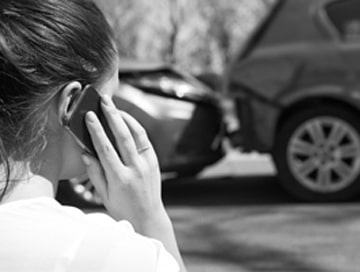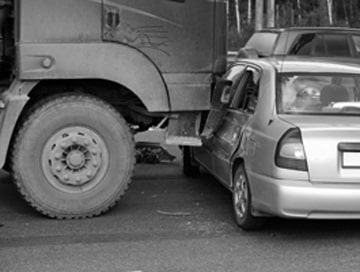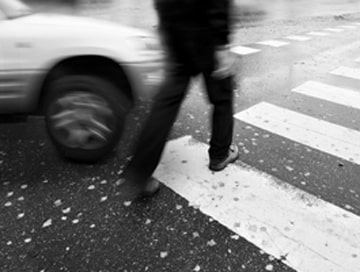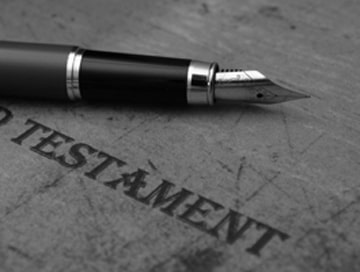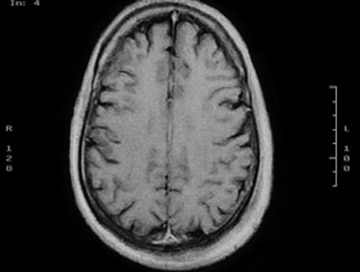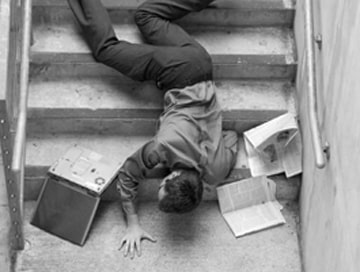Your Rights to Access Collision Reports After a California Car Accident
Getting into a car accident can leave you shaken and uncertain about what steps to take next. One of your first priorities after ensuring everyone’s safety is obtaining a copy of the police report – but who exactly has the legal right to access this crucial document? Under California law, accident reports are considered confidential documents with restricted access. However, if you’re directly involved in the collision or have a legitimate legal interest, you have specific rights to obtain this important record. Understanding these access rights becomes critical when you’re building an insurance claim or considering legal action after a crash.
💡 Pro Tip: Request your accident report ID number from the investigating officer before leaving the scene – this simple step will save you time and hassle when obtaining your report later.
If a car accident has left you grappling with the complexities of access rights and legal documentation, it’s time to steer towards resolution. Kuzyk Law is here to ensure you get the support and clarity needed to navigate your collision report and insurance claims. Reach out today at 661-945-6969 or simply contact us online to safeguard your rights and peace of mind.
Understanding California Vehicle Code Section 20012 and Your Access Rights
California Vehicle Code Section 20012 establishes that all accident reports are confidential and primarily for the use of the DMV and CHP. However, the law specifically requires law enforcement agencies to disclose the entire contents of these reports to parties with proper interest. This includes not just basic information, but comprehensive details such as names and addresses of all involved parties, registration numbers, vehicle descriptions, exact date and time, location diagrams, driver statements, and witness accounts. When working with a Fresno car accident lawyer, understanding these access rights becomes fundamental to building your case.
The statute recognizes several categories of people who qualify as having "proper interest" in accessing collision reports. These include the drivers directly involved in the accident, any passengers who were present during the collision, property owners whose assets were damaged, vehicle owners (even if they weren’t driving), and parents or legal guardians of minor drivers. Additionally, authorized legal representatives acting on behalf of any of these parties can request and obtain full copies of accident reports. This broad definition ensures that anyone with a legitimate need for the information can access it for insurance claims or legal proceedings.
💡 Pro Tip: Insurance companies routinely request these reports as part of their investigation – ask your adjuster for a free copy instead of paying the fee yourself.
Steps to Obtain Your California Collision Report
Accessing your accident report involves a straightforward process, but timing and proper documentation are essential. The investigating officer typically provides an identification number at the scene, which streamlines your request. Reports usually take a few weeks to become available as officers need time to complete their investigation and file the documentation. Understanding this timeline helps you plan your next steps effectively, whether you’re dealing with insurance claims or consulting with legal representation.
- Contact the traffic division of the responding law enforcement agency using your report ID number
- If you don’t have the ID number, provide the accident date, time, location, and your name to locate the report
- Pay the administrative fee (typically around $15) to cover reproduction costs
- For CHP reports, visit any CHP office statewide – not just where the accident occurred
- Submit a photocopy of your driver’s license with mail requests, or have Form CHP 190 notarized if you lack photo ID
- File your SR-1 report with DMV within 10 days if injuries occurred or damage exceeded $1,000
💡 Pro Tip: Each driver must file their own SR-1 report regardless of fault – this requirement is separate from any police report and failure to comply results in automatic license suspension.
Working with a Fresno Car Accident Lawyer to Protect Your Rights
While police reports serve as foundational documents in accident cases, they represent just one piece of the legal puzzle. Insurance companies examine these reports closely, evaluating both factual details and officer observations about potential fault. However, insurers maintain their own liability assessment methods and may reach conclusions different from those stated in the report. This is where experienced legal representation becomes invaluable. Kuzyk Law understands how to leverage police reports effectively while building comprehensive cases that go beyond initial accident documentation. A skilled attorney can identify discrepancies, gather additional evidence, and ensure your rights remain protected throughout the claims process.
💡 Pro Tip: If you discover factual errors in your police report, document the correct information immediately and contact the reporting agency – many errors can be amended with proper proof.
Critical Elements Found in California Collision Reports
Understanding what information your accident report contains helps you better prepare for insurance negotiations and potential legal proceedings. Police reports document far more than just the basic facts of a collision. Officers record detailed observations about road conditions, weather, lighting, and traffic patterns that existed at the time of the crash. They create precise diagrams showing vehicle positions before and after impact, measure skid marks, and note points of impact. These technical details often prove crucial when determining fault and liability. When consulting with a Fresno car accident lawyer, having access to this comprehensive information enables more accurate case evaluation and stronger legal strategies.
Witness Statements and Their Legal Impact
One of the most valuable components of police reports involves witness statements recorded at the scene. These third-party accounts provide unbiased perspectives that can significantly influence how insurance companies and courts view your case. Officers typically interview witnesses separately, documenting their observations about vehicle speeds, traffic signal status, and driver behaviors leading up to the collision. Understanding how these statements appear in your report helps you and your legal team identify supportive evidence for your claim. The credibility of witness testimony often makes the difference between disputed and straightforward liability determinations.
💡 Pro Tip: Review witness statements carefully for consistency – discrepancies between multiple witness accounts may indicate areas where additional investigation could strengthen your position.
Legal Admissibility of Police Reports in Court Proceedings
While police reports carry significant weight during insurance claim negotiations, their use in formal court proceedings faces certain limitations. California evidence rules generally classify police reports as hearsay, meaning they cannot be directly admitted as proof of how an accident occurred. However, specific portions may qualify for admission under various legal exceptions. Factual measurements, distances, and physical observations often qualify as public records. Additionally, any statements you made to the officer that appear in the report could potentially be used against you under party admission rules. This complex legal landscape underscores the importance of working with a Fresno car accident lawyer who understands evidence rules.
Small Claims Court Considerations
Small claims proceedings often apply more relaxed evidentiary standards compared to superior court trials. Judges in these venues may consider entire police reports when making decisions, recognizing that self-represented parties lack resources for extensive evidence gathering. This flexibility can benefit accident victims seeking compensation for property damage or minor injuries. However, even in small claims court, understanding which parts of your report carry the most persuasive weight helps you present a stronger case. Focus on objective facts and measurements rather than subjective officer opinions when building your arguments.
💡 Pro Tip: In small claims court, bring multiple copies of your police report and highlight the most relevant sections – judges appreciate organized presentations that respect their time.
Frequently Asked Questions
Common Questions About Accessing Collision Reports
Many accident victims have similar concerns about obtaining and using police reports effectively. Understanding your rights and the proper procedures helps you navigate this process more confidently while protecting your legal interests.
💡 Pro Tip: Keep all accident-related documents together in one file, including your report request receipts – organization simplifies the process when working with insurance companies or attorneys.
Next Steps After Obtaining Your Report
Once you have your collision report in hand, reviewing it thoroughly and understanding how to use this information effectively becomes your next priority. Many people feel overwhelmed by the technical language and legal implications, but taking systematic steps helps you move forward with confidence.
💡 Pro Tip: Create a timeline of events based on your report’s information – this helps identify any gaps or inconsistencies that need addressing.
1. Can my insurance company obtain my accident report without my permission?
Yes, insurance companies qualify as authorized representatives with proper interest under California Vehicle Code Section 20012. They can request and obtain collision reports directly from law enforcement agencies when investigating claims. This actually benefits you since insurers often provide free copies to their clients, saving you the administrative fee.
2. What happens if I don’t file an SR-1 report within 10 days as required by California law?
Failure to file a required SR-1 report results in automatic suspension of your driving privileges in California. This applies whenever someone suffers any injury (regardless of severity), someone dies, or property damage exceeds $1,000. Each driver must file their own report, and this requirement exists separately from any police reports filed at the scene.
3. How long do CHP and local police departments keep collision reports on file?
While California Vehicle Code Section 20012 doesn’t specify retention periods, most agencies maintain collision reports for several years. CHP offices statewide can access any CHP collision report regardless of where the accident occurred. Contact the specific agency that handled your accident for their retention policy if you need a report from an older accident.
4. Can I correct errors in my police report after it’s been filed?
Yes, you can request corrections for factual errors such as incorrect street names, vehicle identification numbers, or insurance information. Submit documented proof of the correct information to the law enforcement agency that created the report. However, you typically cannot change subjective observations or officer opinions about how the accident occurred.
5. Do passengers in my vehicle have the same access rights to the collision report as drivers?
Yes, passengers qualify as proper parties of interest under California law and have full rights to obtain complete copies of collision reports. They can request reports directly from law enforcement agencies using the same procedures as drivers, including paying the administrative fee and providing proper identification.
Work with a Trusted Auto Accidents Lawyer
Navigating the complexities of accident report access and understanding how to use this information effectively often requires experienced legal guidance. While obtaining your report represents an important first step, interpreting its contents and understanding its implications for your case demands deeper knowledge of California law and insurance practices. An attorney can help identify crucial details you might overlook, spot potential issues with officer observations, and develop strategies for addressing any unfavorable content. Most importantly, legal representation ensures you meet all filing deadlines and procedural requirements while building the strongest possible case for compensation.
When navigating the sometimes choppy waters of accessing your auto accident reports, let Kuzyk Law be your lighthouse guiding you toward clarity and justice. Don’t delay—give us a call at 661-945-6969 or simply contact us online to ensure your rights are firmly anchored.
